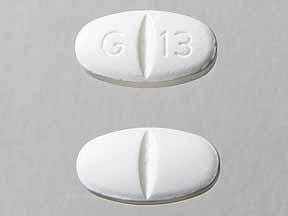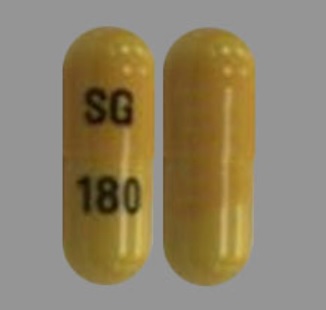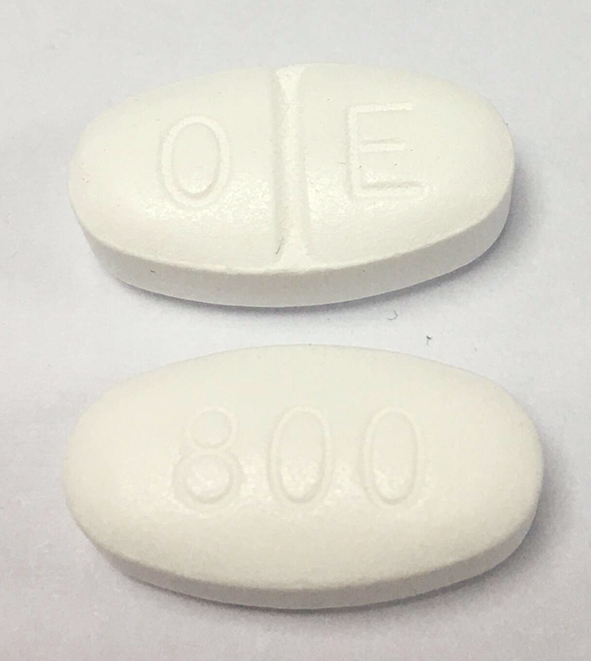- This topic has 3 replies, 1 voice, and was last updated 3 months, 2 weeks ago by
USA HealthStore.
-
AuthorPosts
-
-
::
Gabapentin is sometimes prescribed off-label for anxiety disorders, even though it is not FDA-approved specifically for this purpose. Its effectiveness for anxiety stems from its calming effects on the nervous system, which can help reduce the hyperactivity often associated with anxiety.
- Gabapentin (Neurontin) is FDA approved to treat seizure disorder and nerve pain from shingles. But it’s also used off-label to treat many other conditions, including anxiety, nerve pain from diabetes, and hot flashes.
- Gabapentin may be effective for anxiety, but it’s usually not a first-choice medication for this use. Other medications have been studied more for anxiety, and they’re typically tried first.
- The recommended gabapentin dosage for anxiety and other conditions can range from 300 mg to 3,600 mg per day.
- Side effects of gabapentin may include tiredness, dizziness, and fatigue. These risks may be worse when combined with opioids, benzodiazepines, or alcohol. More seriously, slowed breathing and overdose can occur.
Originally FDA approved as an antiseizure medication, gabapentin (Neurontin) is one of the most commonly prescribed medications in the country. It’s approved to treat seizures and nerve pain from shingles (postherpetic neuralgia). But it’s often used off-label to treat conditions such as insomnia, back pain, and alcohol use disorder.
Before we take a closer look, it’s important to understand that off-label gabapentin use isn’t always safe or effective. Talk to a healthcare professional before considering gabapentin for any of the uses described below.
Gabapentin for anxiety
While gabapentin may be prescribed for anxiety, it’s an off-label use. This means gabapentin isn’t approved for treating anxiety. But research shows it may be effective for some people.
In one study, women with anxiety, who were previously treated for breast cancer, were given gabapentin 300 mg or 900 mg daily. Compared to placebo (a pill with no medication in it), both doses of gabapentin improved anxiety symptoms after 4 and 8 weeks. A very small study also found that gabapentin was helpful for treating social anxiety disorder.
Overall, there haven’t been any large, well-designed studies that compare gabapentin to first-choice anxiety medications, such as selective serotonin reuptake inhibitors (SSRIs). Without this research, most prescribers don’t recommend gabapentin over other anxiety medications that are more proven to help.
[caption id="attachment_9164" align="aligncenter" width="288"]
 Gabapentin 800mg – G 13 Pill, Glenmark Generics Inc. – white oval, 19mm[/caption]
Gabapentin 800mg – G 13 Pill, Glenmark Generics Inc. – white oval, 19mm[/caption]How Gabapentin May Help with Anxiety
Gabapentin works by modulating calcium channels in the brain, which helps to decrease overactive nerve signaling. This action can result in:
- Reduced Physical Symptoms of Anxiety:
- Decreases symptoms like racing heart, trembling, or sweating caused by overactivation of the nervous system.
- Improved Emotional Regulation:
- Some patients report a sense of calmness or less emotional reactivity while taking gabapentin.
- Sleep Support:
- Anxiety often disrupts sleep, and gabapentin’s sedative effects can help improve sleep quality.
How quickly does gabapentin work for anxiety?
Gabapentin can have a calming effect within a few hours or less. But it may take a few weeks or longer to see a sustained improvement in anxiety.
When Gabapentin is Used for Anxiety
- Generalized Anxiety Disorder (GAD):
- Gabapentin is sometimes prescribed for chronic, persistent anxiety that doesn’t respond well to traditional medications.
- Social Anxiety Disorder:
- It can help reduce nervousness in social situations, although it’s not a first-line treatment.
- Post-Traumatic Stress Disorder (PTSD):
- Gabapentin may be used as part of a treatment plan to address hyperarousal symptoms.
- Adjunct Therapy:
- Gabapentin may complement other medications (like antidepressants) for people who need additional symptom control.
Gabapentin for anxiety dosage
In studies, gabapentin doses for anxiety range from 300 mg to 3,600 mg daily. This is similar to gabapentin dosages used for other conditions. Higher doses are generally divided into three doses a day.
Some research indicates that doses of at least 900 mg per day are needed to treat anxiety. Still, we don’t have much research overall to indicate the best gabapentin dosage for anxiety.
Can gabapentin be taken at night?
Yes. In fact, when gabapentin is prescribed as a once daily dose, taking the dose in the evening is often recommended. This is because gabapentin can cause tiredness and may even help with sleep.
Benefits of Gabapentin for Anxiety
- Quick Onset:
- Effects on anxiety may be noticeable within a few days, compared to weeks for antidepressants.
- Fewer Interactions:
- It generally has fewer drug interactions compared to benzodiazepines or antidepressants.
- Low Addiction Risk:
- Gabapentin has a lower risk of dependence compared to benzodiazepines like lorazepam or alprazolam.
What are possible gabapentin side effects?
[caption id="attachment_8958" align="aligncenter" width="326"]
 Gabapentin 300 mgSG180 ScieGen Pharmaceuticals[/caption]
Gabapentin 300 mgSG180 ScieGen Pharmaceuticals[/caption]Like all medications, gabapentin can cause side effects, both common and rare. Typically mild, but more common gabapentin side effects include:
- Tiredness
- Dizziness
- Tremors
- Nystagmus (rapid eye movements you can’t control)
- Fluid buildup
- Weight gain
Rare, but potentially serious side effects of gabapentin include:
- Depression
- Mood changes in children, such as aggressive behavior
- Memory problems
- Severe skin rash
- Anaphylaxis
- Suicidal thoughts and behaviors
- Severe withdrawal symptoms, such as seizures, if stopped abruptly
- Slowed breathing and overdose when combined with opioids, benzodiazepines, or alcohol
What cannot be mixed with gabapentin?
Like most medications, gabapentin has drug interactions to be aware of. Most notably, gabapentin can interact with opioids like oxycodone / acetaminophen (Percocet) and benzodiazepines like alprazolam (Xanax). It can also interact with alcohol. Combining gabapentin with one or more of these substances increases your risk of severe drowsiness, slowed breathing, and overdose. Even some over-the-counter (OTC) antihistamines, like diphenhydramine (Benadryl), can cause severe sedation with gabapentin.
Magnesium and aluminum-containing medications, such as Rolaids (calcium carbonate / magnesium hydroxide), Mylanta Maximum Strength (aluminum hydroxide / magnesium hydroxide / simethicone), and magnesium oxide, are OTC medications that may decrease gabapentin levels, making gabapentin less effective.
Share a current medication list with your healthcare team before starting gabapentin, or anytime you start a new medication while taking gabapentin. This will help them check for potential interactions.
Other possible uses for gabapentin
Many gabapentin prescriptions are for off-label uses. Below, we’ll cover a few conditions where gabapentin may help.
1. Diabetic neuropathy
Gabapentin is a first-choice medication for diabetic neuropathy (nerve pain from diabetes). There’s not as much evidence for use of gabapentin for other types of nerve pain, though (besides diabetic neuropathy and postherpetic neuralgia).
2. Pain after surgery
Taking gabapentin before or after surgery may help reduce pain and decrease the need for opioid medications. In several studies, gabapentin was shown to lower pain after procedures like heart surgery, hysterectomy, and thoracic (chest) surgery.
The doses of gabapentin used for surgical pain ranged from 300 mg to 1,200 mg, before and/or after surgery.
3. Alcohol withdrawal and alcohol use disorder.
Alcohol withdrawal happens when you or a loved one has become dependent on regular alcohol consumption and abruptly stops drinking. Withdrawal can be extremely uncomfortable, resulting in symptoms like tremors, mood changes, and sleep problems. More serious side effects are also possible, such as fever, seizures, and hallucinations.
Benzodiazepine medications like chlordiazepoxide (Librium) and lorazepam (Ativan) are first-choice medications to treat or prevent these symptoms. Gabapentin may be a possible alternative (typically at doses of at least 1,800 mg) in people with normal kidney function, but it’s not a first-choice option. Benzodiazepines have shown to prevent serious withdrawal-related consequences like seizures and delirium tremens.
In addition to helping with alcohol withdrawal symptoms, gabapentin may also improve the chances of quitting alcohol use.
4. Cannabis use and withdrawal
Gabapentin may help reduce cannabis use in people who want to stop. Despite misconceptions that cannabis is not addictive, one survey estimates that around 14 million people show symptoms of cannabis use disorder. Similar to alcohol withdrawal, abruptly stopping cannabis can cause some unpleasant withdrawal symptoms, including difficulty sleeping, mood swings, and sweating.
5. Hot flashes in women
Gabapentin may help women who are experiencing hot flashes due to menopause, breast cancer, or medications. Gabapentin dosing for hot flashes is usually 900 mg to 2,400 mg per day, divided into three doses.
6. Restless leg syndrome
An extended-release form of gabapentin known as Horizant (gabapentin enacarbil) is approved to help reduce the symptoms of restless leg syndrome (RLS). This condition is a movement disorder that involves an almost irresistible urge to move the legs, which occurs in up to 10% of the U.S. population.
While immediate-release (IR) gabapentin isn’t FDA approved for RLS, research suggests its effective for this use. In fact, both IR gabapentin and Horizant are considered first-choice medication options for RLS. If IR gabapentin is used, it’s typically used at doses between 1,200 mg to 1,800 mg per day.
7. Itchy skin
Itchy skin is a common, bothersome symptom that may be caused by many medical conditions. Removing the cause of skin irritation and using topical medications or antihistamines can help some types of itchy skin. But gabapentin may be effective for itching caused by certain types of nerve problems. Dosing varies, but up to 3,600 mg per day may be prescribed (divided into three doses).
-
::
Potential Drawbacks and Risks
Limited Evidence:
While some studies support gabapentin’s use for anxiety, it is not universally effective and lacks large-scale clinical trials for this indication.
Side Effects:
Common side effects include drowsiness, dizziness, fatigue, and coordination problems.
Dependency Risk:
Though less addictive than benzodiazepines, gabapentin misuse has been reported, especially at high doses. -
-
::
Important Considerations
Not a First-Line Treatment:
Selective serotonin reuptake inhibitors (SSRIs) and cognitive-behavioral therapy (CBT) are more commonly recommended for anxiety.
Medical Supervision Required:
Gabapentin should only be taken under a healthcare provider’s guidance. Abruptly stopping it can lead to withdrawal symptoms, including rebound anxiety.
-
-
AuthorPosts

